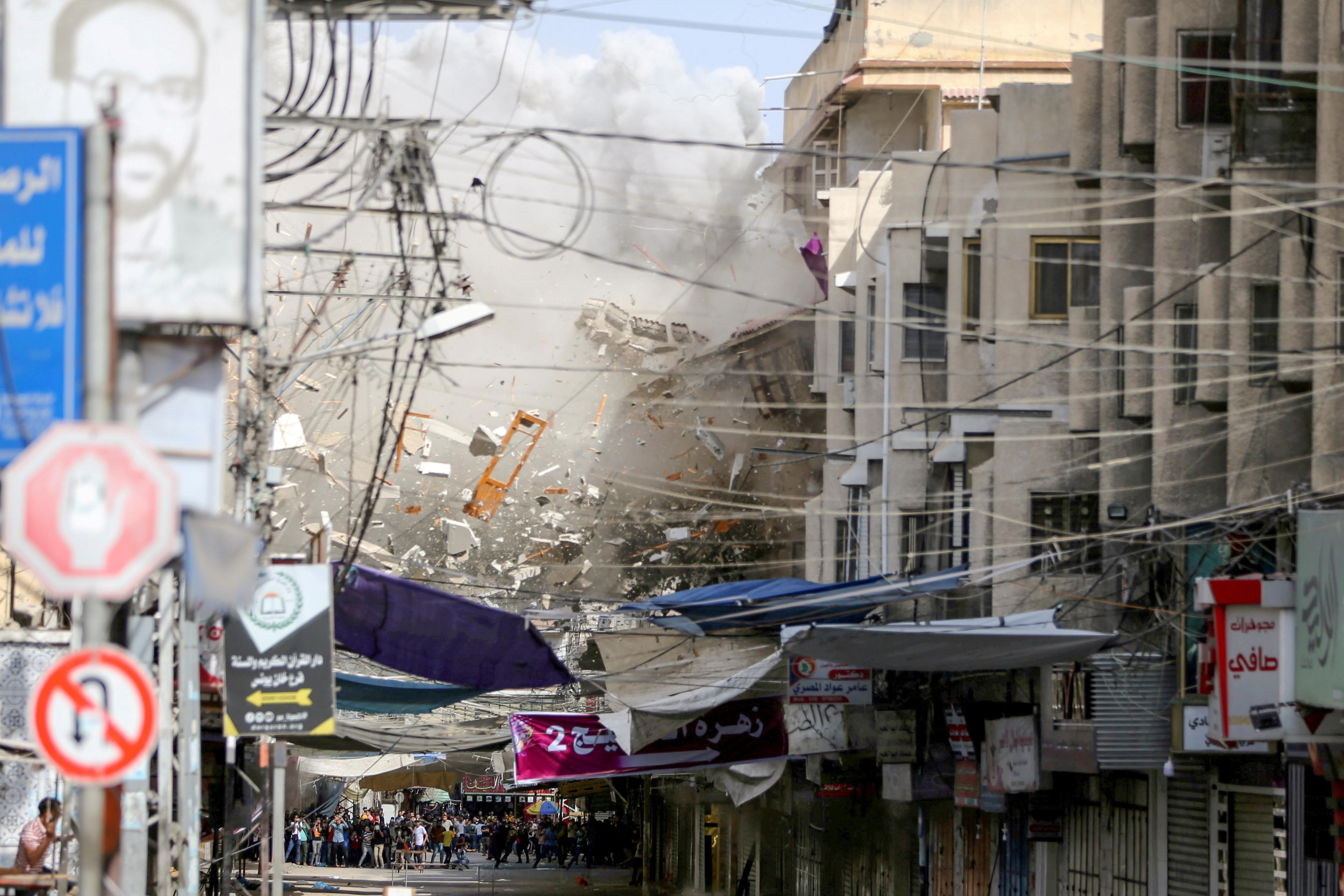Israel and Hamas agree to ceasefire: After 11 days of intense violence, Israel and Hamas have agreed to an Egypt-brokered ceasefire that goes into effect Friday at 2 am local time. Since May 10, Hamas has fired more than 4,000 rockets at Israeli cities, resulting in a dozen deaths and scores of injuries, while Israel has carried out hundreds of air and ground strikes on Gaza, leaving the Palestinian death toll at more than 200. Now both sides have reportedly agreed to stop fighting without conditions. Each will claim a victory of sorts: Israel says it has seriously degraded Hamas' terrorist infrastructure, setting the group back many years, while Hamas will assert itself as the real protector of Jerusalem and boast of its successes in firing long-range munitions at Israel. How long the Israel-Hamas ceasefire holds is a big question, but another major challenge will be dealing with clashes within Israel, where tensions between Jews and Arabs have soared.
South Korean pardon for... chips? Seoul is under mounting pressure from the US to pardon Lee Jae-yong, South Korea's richest man. Lee is currently serving a 30-month prison sentence for his role in a massive corruption scandal, but he's also the heir at Samsung, one of the world's largest semiconductor manufacturers. So long as he's in prison the company's future leadership is in doubt, and given an ongoing global shortage of microchips that has crippled the US auto industry, that's no small matter for Washington. South Korean President Moon Jae-in seems open to clemency, but he's in a tough spot. On the one hand, a smooth succession at Samsung is crucial for the tech giant to keep churning out semiconductors. On the other, pardoning Lee would send the (wrong) message that powerful and corrupt people always find a way to evade justice. Moon must tread carefully, wary that the Samsung scandal cost his predecessor Park Geun-hye her job in 2015.
Have cow, will vaccinate: Thousands of people have registered to get COVID vaccines in a Thai town after the mayor announced he would raffle off free cows to residents who get jabs. Similar vaccination incentives are happening all over the world, including a free visit to Dracula's castle in Romania or gold nose pins for women in India. The biggest draw so far is in the US state of Ohio, which offers a $1 million prize for the lucky winner of its weekly vaccine lottery. While all of these ploys will surely entice some skeptics, it's not clear whether freebies and rewards like this can really move the needle — so to speak — on vaccine hesitancy. Meanwhile, not all countries are using carrots: Indonesia has made vaccination mandatory, and will fine or cut subsidies to people who refuse a shot. Whether you prefer incentives or punishment, expect more — and perhaps weirder — vaccine incentives to pop up as the jabs become more available, particularly across the developing world, in coming months.More For You
Most Popular
Think you know what's going on around the world? Here's your chance to prove it.
Xi Jinping has spent three years gutting his own military leadership. Five of the seven members of the Central Military Commission – China's supreme military authority – have been purged since 2023, all of whom were handpicked by Xi himself back in 2022.
From a resilient but divided consumer economy to cooling small business hiring, tighter housing affordability, and AI’s shift from buzzword to economic engine, 2025 revealed a “K-shaped” recovery and rapid technological transformation. Bank of America Institute’s 2025 Year in Review distills the data behind the year’s defining trends. Explore the 2025 Year in Review from Bank of America Institute.
